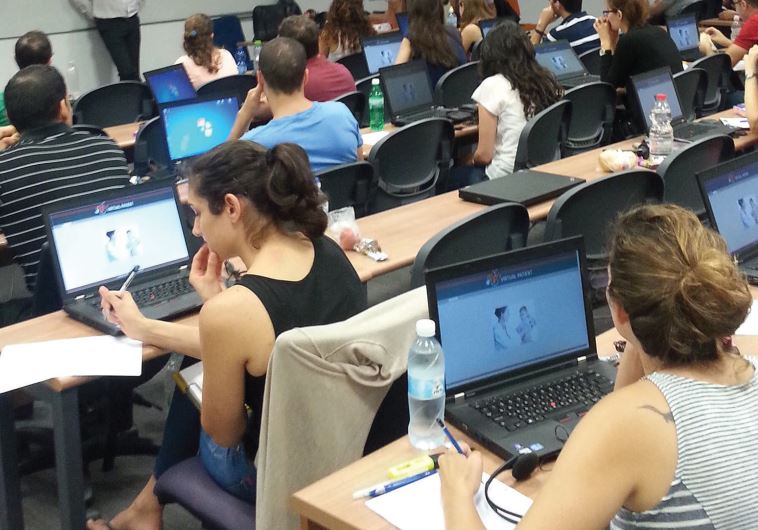Bar-Ilan researchers worry about future of medical profession
The newest generation of Israeli doctors may put the desire for appropriate pay and working conditions before altruism.
 STUDENTS AT the Technion’s Rappaport Medical Faculty listen to internal medicine lecture.Updated:
STUDENTS AT the Technion’s Rappaport Medical Faculty listen to internal medicine lecture.Updated: